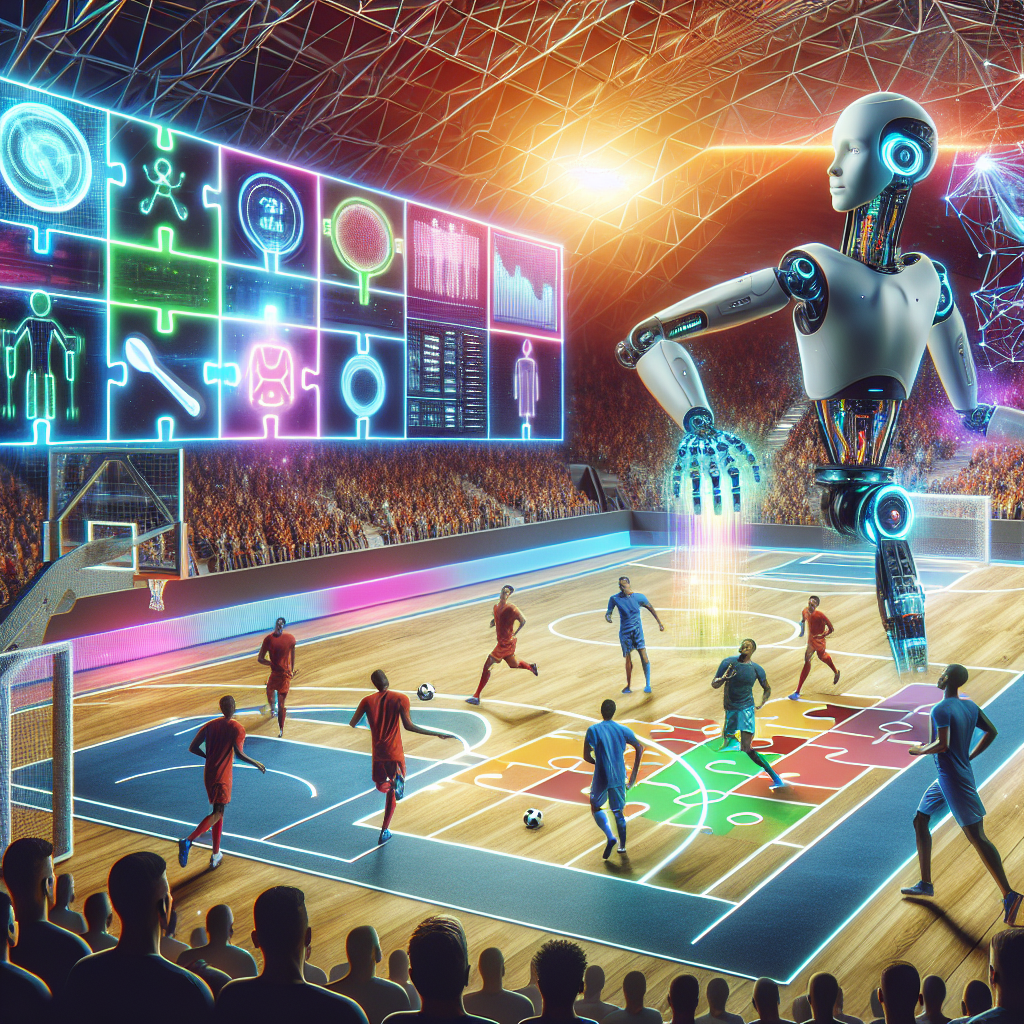In recent years, the intersection of artificial intelligence (AI) and sports has captured the imagination of fans, athletes, and analysts alike. From predictive analytics to coaching decision-making, AI is revolutionizing the way sports are played, managed, and consumed. This article aims to explore the future of AI in sports, focusing on how these game-changing technologies are reshaping the landscape of sports performance and strategy.
Enhancing Performance
One of the most significant impacts of AI in sports is its ability to enhance athlete performance. Through the use of wearable technology and data analytics, coaches and trainers can track and monitor various metrics such as heart rate, speed, and acceleration in real-time. This data can then be analyzed using AI algorithms to identify patterns, detect potential injuries, and optimize training regimens for individual athletes. For example, the Golden State Warriors use AI-powered cameras to track player movements during games, providing valuable insights into player performance and strategy.
In addition to physical performance, AI is also being used to improve mental and emotional aspects of sports. For instance, some teams are employing AI-powered chatbots to provide mental health support to athletes, helping them manage stress and anxiety. By leveraging AI in this way, teams can ensure that their athletes are in peak condition both physically and mentally, ultimately leading to improved performance on the field.
Optimizing Strategy
Beyond enhancing individual performance, AI is also transforming the way teams approach strategy and decision-making. By analyzing vast amounts of data, AI can provide coaches with valuable insights into opponent tactics, player tendencies, and game situations. This allows teams to make more informed decisions on everything from lineup selection to in-game adjustments, ultimately giving them a competitive edge.
For example, IBM’s Watson platform is being used by some NFL teams to analyze play-calling tendencies and suggest optimal strategies based on game situations and opponent tendencies. By leveraging AI in this way, teams can gain a deeper understanding of the game and make smarter decisions that increase their chances of winning.
Fan Engagement
In addition to its impact on performance and strategy, AI is also revolutionizing the way fans engage with sports. With the rise of virtual reality (VR) and augmented reality (AR) technologies, fans can now experience games in immersive ways that were previously unimaginable. For example, the NBA has partnered with NextVR to offer fans the ability to watch games in VR, giving them a unique perspective that enhances their viewing experience.
Furthermore, AI-powered chatbots and virtual assistants are being used to provide personalized content and recommendations to fans, helping them stay engaged and informed about their favorite teams and players. By leveraging AI in this way, sports organizations can create more personalized and interactive experiences for fans, ultimately increasing fan loyalty and engagement.
Conclusion
As AI continues to advance, its impact on sports is only expected to grow. From enhancing athlete performance to optimizing strategy and engaging fans, AI is transforming the way sports are played, managed, and consumed. By embracing these game-changing technologies, sports organizations can stay ahead of the curve and unlock new opportunities for success in an increasingly competitive landscape. The future of AI in sports is bright, promising exciting innovations and advancements that will shape the future of sports for years to come.










